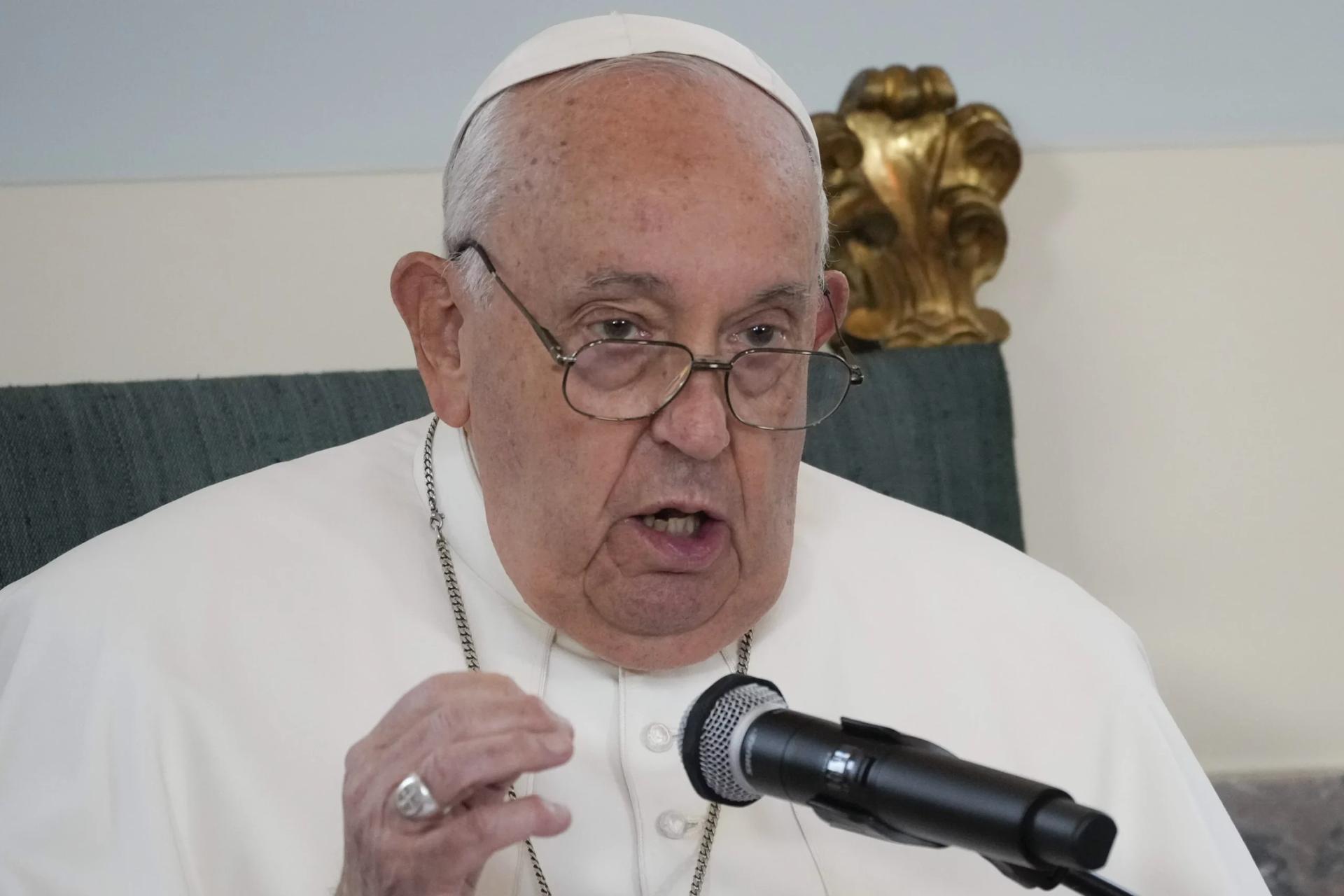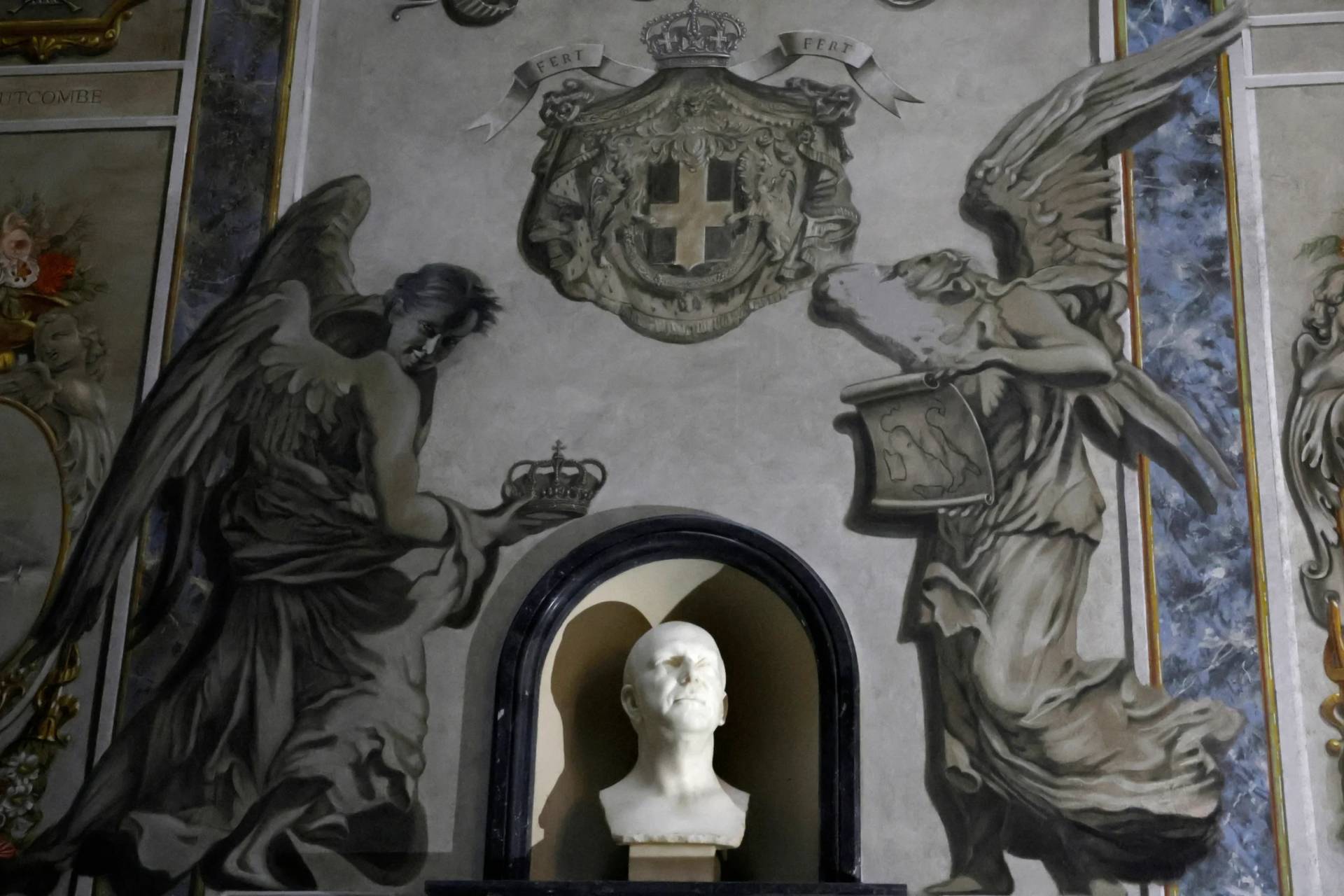BRUSSELS – Pope Francis met with university professors in Brussels Friday, telling them an institute of higher education must be inclusive amid diversity and not grow weary of or place limits on the pursuit of truth.
Speaking to professors at the Katholieke Universiteit Leuven Sept. 27, the pope said universities by nature are “driving forces of ideas and sources of new inspiration for human life and thought, and for facing the challenges in society.”
“It is a fine thing to view universities as generating culture and ideas, but above all as promoting the passion for seeking truth, at the service of human progress,” he said, saying this is especially true for Catholics, who must be “ever open to new situations and ideas.”
He urged the professors to “expand the boundaries of knowledge! Rather than multiplying concepts and theories, make academic and cultural formation a critical space that both understands and speaks about life.”
On the importance of staying open, Francis referred to the story of Jabez in the biblical Book of Chronicles, in which Jabez – whose name the pope said meant “pain” due to his mother’s difficult childbirth – prayed that God “would bless me and enlarge my border.”
Expanding borders and becoming an open space is essential for a university, he said, lamenting what he said was an “ambivalence” to pushing boundaries.
On one hand, he said, “we are immersed in a culture marked by a refusal to seek the truth. We have lost the ardent passion for searching. We would rather find comfort and refuge in the tenuous thought that all things are equal, everything is the same, everything is relative.”
However, on the other hand, often when the topic of truth arises in academic contexts, “we can often fall into a rationalist approach, considering as “true” only those things that can be measured and tested by experiment, as if life were uniquely restricted to what is material and visible.”
“In both these cases, boundaries are limited,” he said, condemning the “intellectual weariness” of those who refuse to seek truth and thus remain in a “permanent state of uncertainty, lacking all passion, as if the search for meaning were useless and reality were incomprehensible.”
To this end, he said such an attitude is evocative of the works of Franz Kafka, “which describe the tragic and distressing human condition of the nineteenth century.”
The search for truth is tiring, he said, as it requires a person to move beyond themselves and face new challenges.
“There is likewise the danger of being attracted to an easy, effortless and comfortable “faith” that does not call anything into question,” he said, but also cautioned against the risk of falling into a “soulless rationalism conditioned by technocratic culture.”
When humanity is treated as “mere matter” and reality is limited to what is visible and reason reduced mere mathematics and experimentation, “much is lost,” he said.
“In this way, we lose our sense of wonder, our ability to marvel, which urges us to look beyond, to raise our eyes heavenwards,” and to discover the hidden truth in questions such as the meaning of existence and what the ultimate aim of life is, he said.
Pope Francis insisted that humanity is only capable of discovering the truth about themselves through God, since it was God who created humanity.
He urged professors to avoid falling into “intellectual weariness or a soulless rationalism” and to instead always seek to broaden their own borders and to ensure that their work is at the service “of a culture capable of facing today’s challenges.”
Francis thanked them for their work and also applauded the welcome given to refugees who fled their home countries amid great hardship, but who wish to continue their education, pointing to a video on migration and refugees that was shown at the beginning of the event.
“While some people call for the reinforcement of physical borders, you have expanded borders as a university community, you have opened your arms in welcome to those marked by suffering, in order to help them study and grow,” he said.
To this end, the pope called for a culture that “expands boundaries” while avoiding sectarianism and placing oneself above others.
Culture must serve the common good of humanity, he said, saying this is a responsibility entrusted, in particular, to the world of academia.
“Keep this flame alive; expand boundaries! Be restless seekers of truth, and do not allow your enthusiasm to wane lest you yield to intellectual lethargy,” he said, telling them to be protagonists “in generating a culture of inclusion, compassion, and attentiveness towards the weakest as you seek to overcome the great challenges of our world today.”
Pope Francis spoke to university professors at the Catholic University of Leuven as part of his Sept. 26-29 visit to Luxembourg and Belgium.
The visit is being made largely to celebrate the 600th anniversary of the founding of the Universities of Leuven and Louvain, which date back to 1425, when founded originally as one institution by Pope Martin V.
However, they split in the 1960s, resulting in the establishment of two separate universities: the Dutch-speaking KU Leuven and the French-speaking Université Catholique de Louvain (UCL).
Pope Francis’s visit to Belgium has been deeply controversial, in part due to fallout of the clerical sexual abuse crisis and the scandals surrounding the church’s role in forced adoptions, with some students at the University of Leuven protesting the pope’s presence.
In a speech ahead of the pope’s address, the rector, Luc Sels, spoke of the issue of migration and the presence of refugees in Belgium’s institutes of higher education – the same topic featured in the video shown to the pope and one some observers believe was chosen to quell unrest among those opposing the papal visit, as the pro-migrant stance is considered a more liberal cause supported by significant portion of Leuven’s student body.
Sels also openly advocated for the women’s priestly ordination in the church, as well as more relaxed views on gender identity and a broader acceptance of the LGBTQ+ community. Pope Francis did not address any of those issues in his speech.
On Saturday, Francis will meet with local bishops, clergy and religious in Belgium before holding a meeting with students at the Catholic University of Louvain, which has been more receptive to his visit, that evening.
Follow Elise Ann Allen on X: @eliseannallen












